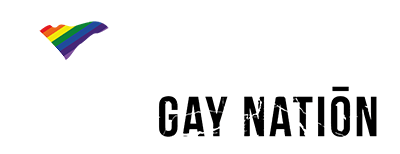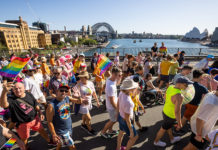
The United Nations Human Rights Council has made history by adopting a resolution to protect individuals against “violence and discrimination based on sexual orientation, and gender identity,” mandating the establishment of an independent sexual orientation and gender identity (SOGI) expert.
The historic victory for human rights builds upon two previously enacted resolutions which were adopted by the United Nations Human Rights Council in 2011 and 2014.
Jointly presented by forty-eight countries including seven Latin American countries (Argentina, Brazil, Chile, Colombia, Costa Rica, Mexico, and Uruguay) who championed the resolution. The resolution was adopted by a vote of twenty-three in favour, eighteen against, with six nations abstaining.
Micah Grzywnowicz of the Swedish Federation for LGBTQ Rights, (RFSL) has described the resolution as “truly momentous,” explaining, “This is our opportunity to bring international attention to specific violations and challenges faced by transgender and gender non-conforming persons in all regions.”
“It’s time for international community to take responsibility to ensure that persons at risk of violence and discrimination because of gender identity are not left behind.”
 The vote in favour of the resolution follows a joint campaign, comprising of a record 628 nongovernmental organisations from 151 countries around the world, calling on the Council to adopt the resolution and creating the mandate to establish an SOGI Independent Expert.
The vote in favour of the resolution follows a joint campaign, comprising of a record 628 nongovernmental organisations from 151 countries around the world, calling on the Council to adopt the resolution and creating the mandate to establish an SOGI Independent Expert.
The mandate to establish an independent SOGI Expert has been described as a “game changer” in counter-acting the violence which fuels the HIV epidemic in key, at-risk, populations around the globe, and will be responsible for:
- Assessing the implementation of existing international human rights law.
- Identifying best practices and gaps.
- Raising awareness of violence and discrimination based on sexual orientation and gender identity.
- Engaging in dialogue and consultation with States and other stakeholders.
- Facilitating provision of advisory services, technical assistance, capacity-building and cooperation to help address violence and discrimination on these grounds.
Joleen Mataele of the Tonga Leiti’s Association has since praised the resolution saying, “It will ease the work of all human rights defenders and it is essential for our governments and people to have the knowledge on how to protect LGBT communities from any violence and discrimination they face.”
 See how nations in the nations in the United Nation Human Rights Council voted below.
See how nations in the nations in the United Nation Human Rights Council voted below.
In favour of the resolution: Albania, Belgium, Bolivia, Cuba, Ecuador, El Salvador, France, Georgia, Germany, Latvia, Macedonia, Mexico, Mongolia, Netherlands, Panama, Paraguay, Portugal, Republic of Korea, Slovenia, Switzerland, UK, Venezuela, Viet Nam
Against the resolution: Algeria, Bangladesh, Burundi, China, Congo, Cote d’Ivoire, Ethiopia, Indonesia, Kenya, Kyrgyzstan, Maldives, Morocco, Nigeria, Qatar, Russia, Saudi Arabia, Togo, United Arab Emirates
Abstaining on the resolution: Botswana, Ghana, India, Namibia, Philippines, South Africa.
Last Updated on Jul 5, 2016
The news team for Gay Nation love tips from our readers. Got tips or a news story that you would like published? Go here to tell us something.
Visit the Gay Nation store Now




























